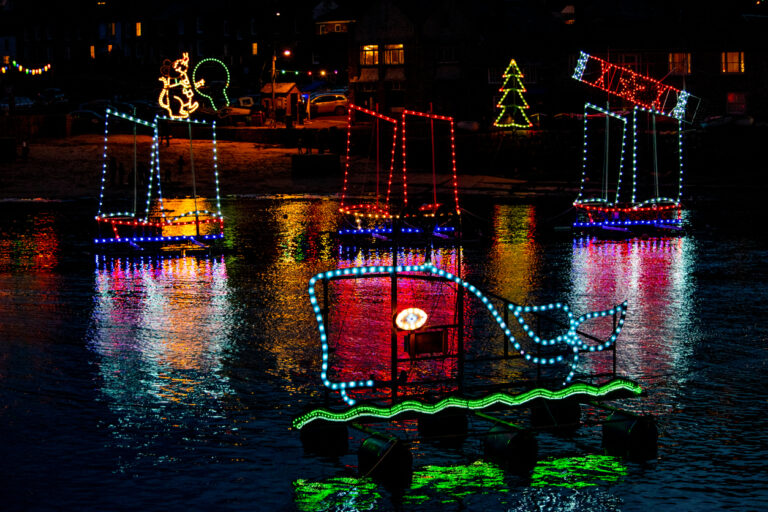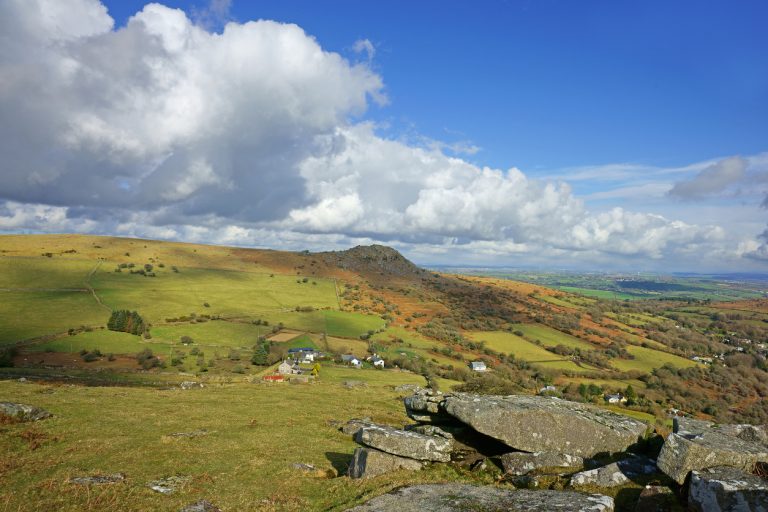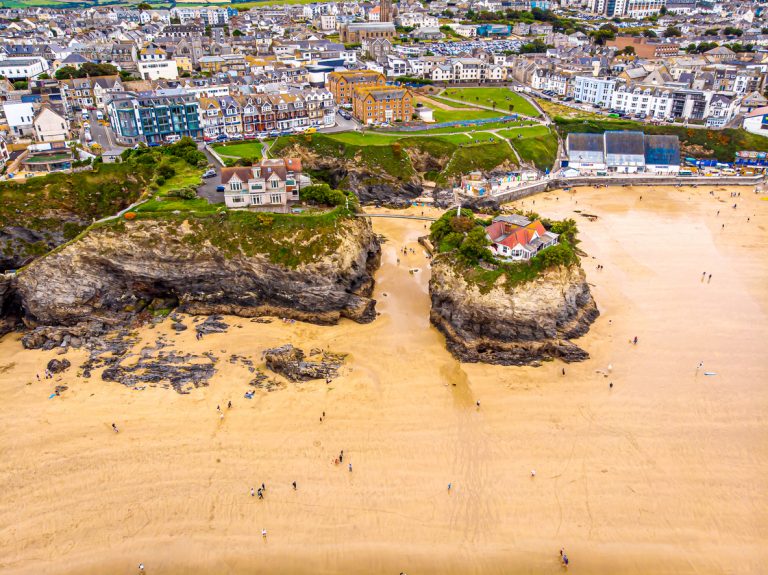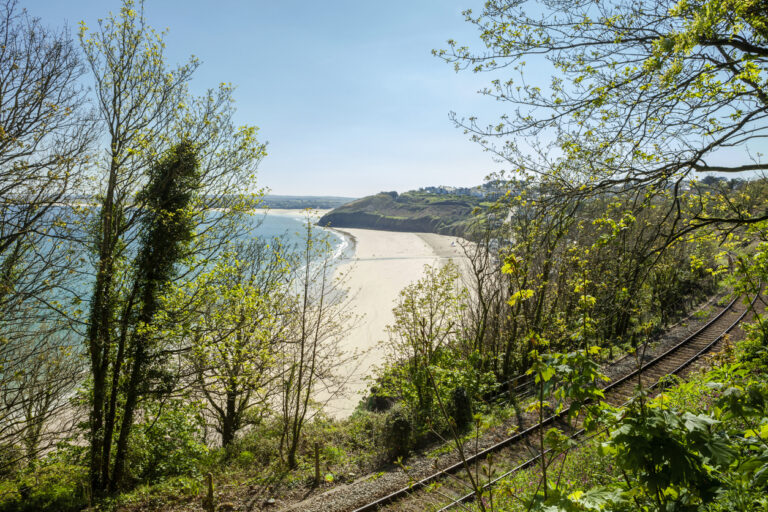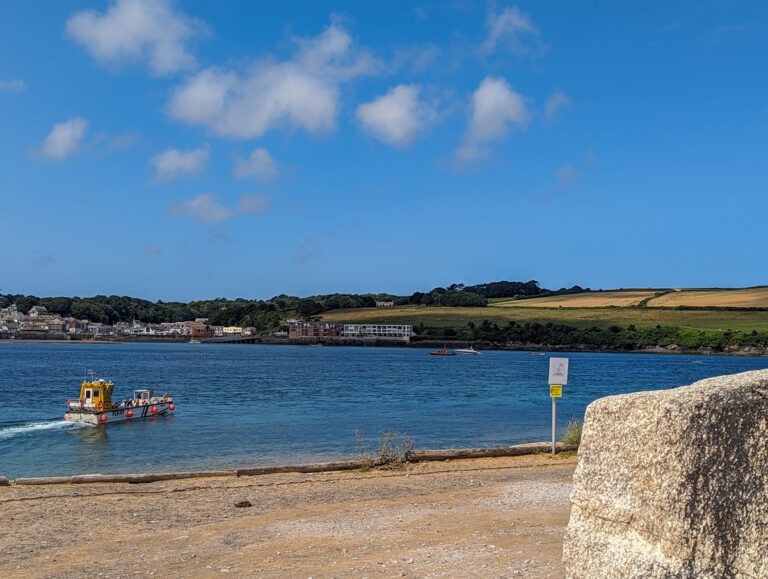12 things you should NEVER do in Cornwall
Whether you’re planning your first trip to Cornwall or are a regular visitor, here are 12 things that you should NEVER do while you’re here!
DON’T swim when there’s a red flag on the beach
The first thing you should never do in Cornwall is swim when there is a red flag on the beach.
A red flag symbolizes, “don’t go in, the water’s dangerous; there are currents or rips”, etc.
The sea around Cornwall can be dangerous; you’re on the edge of the Atlantic Ocean, so there are big swells.
If you see one of these flags, just don’t go in the water – and if you have any doubt, ask a lifeguard.
DON’T walk too close to cliff edges
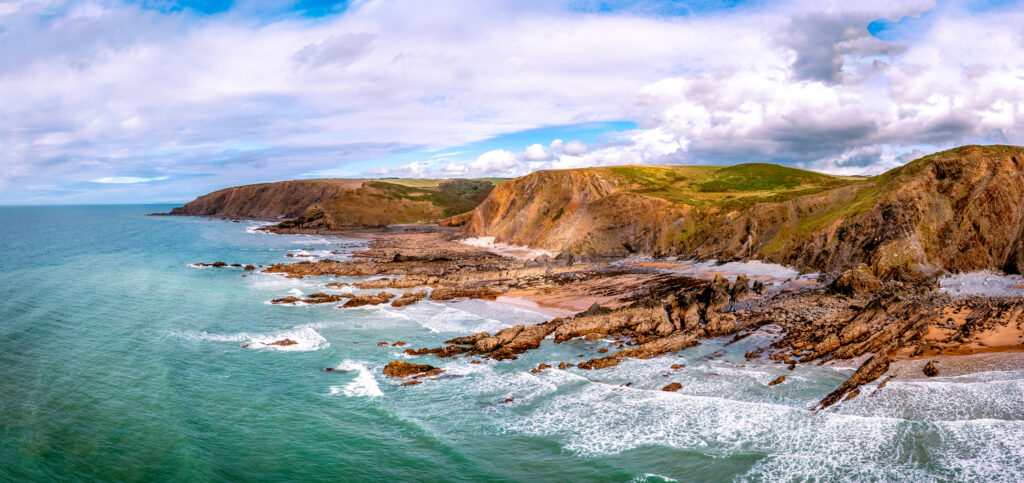
Another safety concern is don’t walk too close to cliff edges.
Now, the South West Coast Path is a wonderful trail that spans from Minehead in Somerset all the way down to Studland Bay in Dorset and it traverses the entire Cornish coastline.
It’s absolutely beautiful, and I definitely recommend hiking on part of it while you’re in Cornwall, but please don’t get too close to the cliff edges.
The path is safe – but I wouldn’t recommend going towards the seaside of the path.
It can be very dangerous, even if it seems like you’re far away; sometimes the cliffs do crumble and collapse.
If you have a dog and you’re on the coast path and you’re close to the cliff edges, keep them on a lead because you don’t want the dog just going towards the cliff edges and then putting themselves in danger – and potentially putting you in danger as well if you go after them.
DON’T drive too fast down country roads
The next thing is to not drive too fast down country roads.
South West country roads can be very small, very narrow, and can really only fit one car down, and then you have to find passing places to pass the other cars.
When I first moved to the West Country, I hated these roads; I was used to driving on much bigger city roads and did not know what I was doing.
Now I’ve got used to them, but I still really try to monitor my speed going down them.
Technically, the speed limit is 60, but I think that’s absolutely ridiculous for some of these roads!
And when you don’t know the roads as well, and you don’t know where they turn, or where the next nearest passing places are, it’s just not worth it to drive really fast along them.
DON’T put cream on first
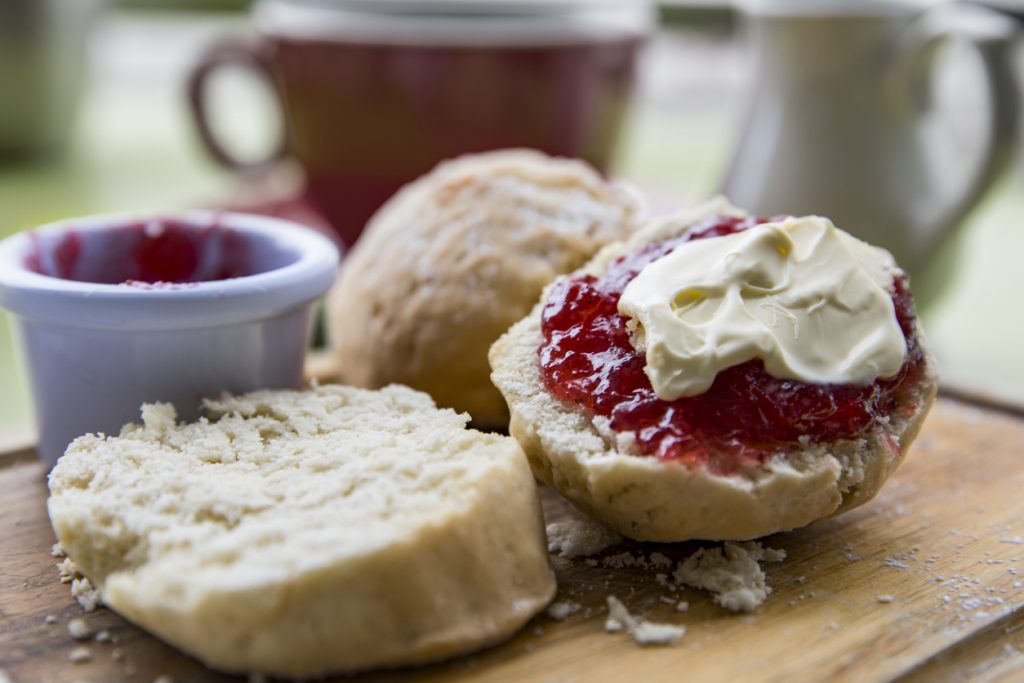
Now, something a little bit more light-hearted, although this has caused many a debate between people from Devon and people from Cornwall: if you have a cream tea, which I highly recommend you do while you’re in Cornwall, don’t put your cream first!
So in Devon, cream goes on first, and then jam goes on top; in Cornwall, jam goes on first and then cream goes on top.
If you do it one way round or the other in the wrong county, you’re going to get looks of disapproval!
Just as a disclaimer, I live in Devon, and my family is from Cornwall, and I never know which way around to do my scones, so I change depending on where I am.
If I’m in Cornwall, I put jam on first; if I’m in Devon, I put cream on first.
DON’T just visit Newquay or St Ives (and think you’ve seen Cornwall)
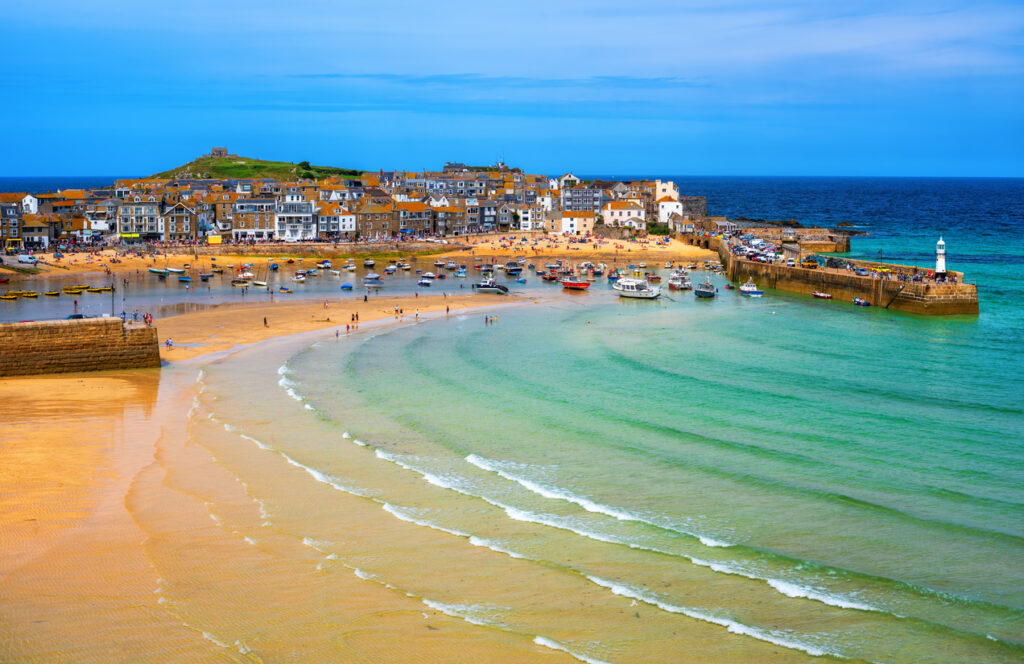
The next thing to not do when you’re visiting Cornwall is to just visit Newquay or St Ives and then think you’ve seen the whole place.
Newquay and St Ives are great – but know that there is so much more to Cornwall than Newquay and St Ives.
They’re both beautiful coastal towns; Newquay’s beaches are lovely; I’m not a huge fan of the town itself.
I love St Ives, but it gets very busy.
But there are so many more places to see in Cornwall, so if you only see one of them, just know that you haven’t seen all of Cornwall!
If you’re looking for other places to go, there are so many places to recommend, but here are my top ones:
- The Lizard is probably my favourite place in Cornwall
- I like Penzance; it’s got a lot more of a local feel, but there’s a lot of history and culture there
- I absolutely love Falmouth and its food scene
- Bude is really good for surfing
- Boscastle is really pretty
- Tintagel is known for its castle.
- Fowey is a lovely harbour town
- Looe is really lovely; it’s got the Looe River and some nice estuary scenery there
- Polperro is a charismatic fishing village
- There’s Bodmin Moor in the centre, which is not coastal but is a really foreboding, brooding moor.
- Plus you can visit Jamaica Inn in the middle of the moor
- then you’ve got Truro, which is the capital of Cornwall, its only city, with a lovely cathedral and really nice architecture
- Or you could go to Redruth and Camborne, where my family’s from, and learn about mining history.
DON’T visit Cornwall in August
The next thing to not do in Cornwall, if you can avoid it — I know it’s not possible for everyone — is to avoid visiting in August if possible.
Obviously, if you have school-aged children or if you work in a school, it won’t be possible to avoid school holidays – although you can avoid August.
Instead, I would recommend visiting in May half term or even October half term.
It’s not as warm, but it’s a lot quieter.
But August just goes crazy; Cornwall gets so many tourists, the roads are usually just a complete traffic jam.
So I wouldn’t recommend visiting in August if you can avoid it; any other time of year is absolutely lovely!
See my full guide to Cornwall in August.
DON’T visit walk on Bodmin Moor in bad weather
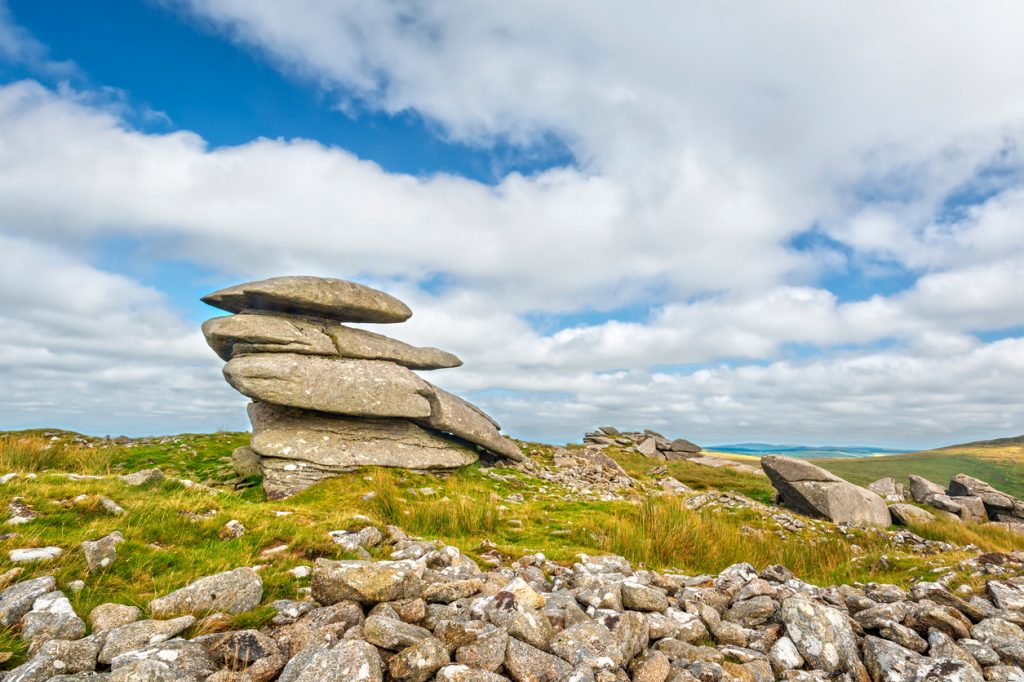
The next tip focuses just on Bodmin Moor or the other moors.
Don’t walk around on them if visibility is poor.
Bodmin Moor, in particular, is very easy to lose your way.
And once you’ve lost your way, you need some good navigational skills and equipment to refind where you are!
So I would only recommend hiking there if you have very good visibility.
Interestingly, that’s actually what happened to Daphne du Maurier; she got lost on Bodmin Moor, ended up at Jamaica Inn, was inspired by the smuggling history, and then wrote her whole book Jamaica Inn!
That could have ended worse, so leave hiking on the moors for clear days.
DON’T eat in front of seagulls and take your eyes off the food!
The next thing to not do in Cornwall is quite specific, but don’t eat on the beach where there are seagulls around and take your eyes off your food.
There’s nothing wrong with eating on the beach, but if you’re eating a Cornish pasty and take your eyes off it, you might find that a seagull swoops in and grabs it.
This happens every day in Cornwall!
So if you’re eating where there are seagulls around, just keep your eye on your food.
Look at your food, and you know the seagulls will see you’ve got your eyes on your food!
But as soon as you’re distracted, they will literally take it out of your hand. It happens a lot, especially in St Ives!
DON’T park your car on the beach
I can’t really believe I’m having to write this, but don’t park your car on the beach.
Every single year without fail, I see someone on Facebook that has parked their car on a beach.
You’re just not meant to park your car on the beach. I don’t think any beaches have car parks.
And I see these cars parked on a beach and then, a few hours later, a photo of a car being taken out by the tides.
So yeah, just know parking’s not very good in Cornwall – I know it’s expensive, and I know in the summer it’s hard to find parking spaces, but just don’t park your car on the beach!
DON’T stay in Airbnbs
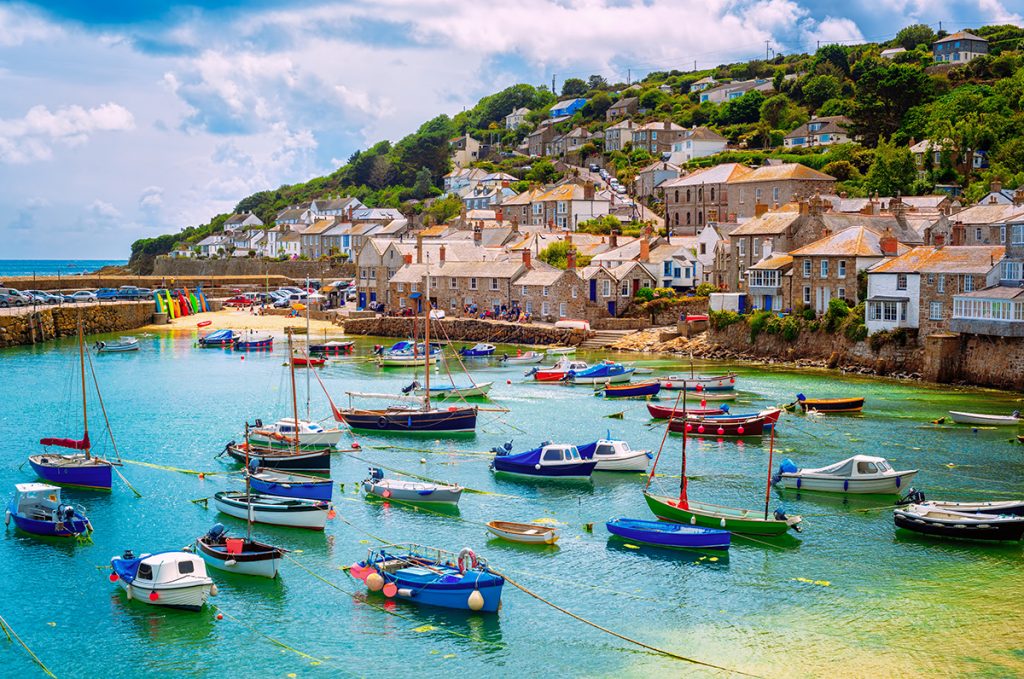
Try to avoid staying in Airbnbs.
Now granted, again, I know this might not be possible for everyone, but if you are staying in an Airbnb, maybe try and make sure it’s one that isn’t a second home.
There’s a big problem in Cornwall with second-home owners.
A lot of people who have money to buy two houses have bought second homes in Cornwall, which has caused the cost of houses in Cornwall to rise ridiculously, and it means that now a lot of locals can’t afford to buy in Cornwall!
This has also caused a lot of younger people to leave Cornwall.
It’s causing a lot of issues within Cornish society.
Now, a lot of people who buy second homes find that if they rent them out on Airbnb, it avoids some sort of second-home tax because they’re technically having it as a rental property.
You can avoid supporting this by not using Airbnbs.
If you do want to rent a cottage or some kind of holiday home, it would be better, I think, to use one of the Cornish cottage holiday companies, such as Aspects or Classic Cottages.
They’ve still kind of taken over a lot of villages – if you go to the village of Mousehole it is all holiday homes, but I do think that it’s at least better to rent off them because those are homes that are tailored towards tourists, rather than homes that are empty for most of the year.
But also there are lots of local B&Bs, campsites, hostels and hotels.
There is so much accommodation to choose from in Cornwall.
Granted, if you’re in a group and you want the kitchen, you want some space, then it might be better to rent a holiday home but try to rent it from a website that is specifically tailored for holiday lettings.
DON’T take Dreckly seriously!
If someone tells you they’ll do something “dreckly,” it’s not going to be anytime soon.
“Dreckly” is a great bit of Cornish slang, and it means what it sounds like, “directly,” i.e. “At some point in the future.”
So if I say, “I’m going to have a cup of coffee dreckly,” it just means I’m going to have a cup of coffee probably in the next couple of hours.
So if someone says that to you or you know, if they say, “Oh, the boat will be here dreckly,” or “It’ll be open dreckly,” it just means it will be open at some point, probably today, but depending on what they’re talking about, it may just be at some point in the future.
DON’T ignore Cornwall’s culture and heritage
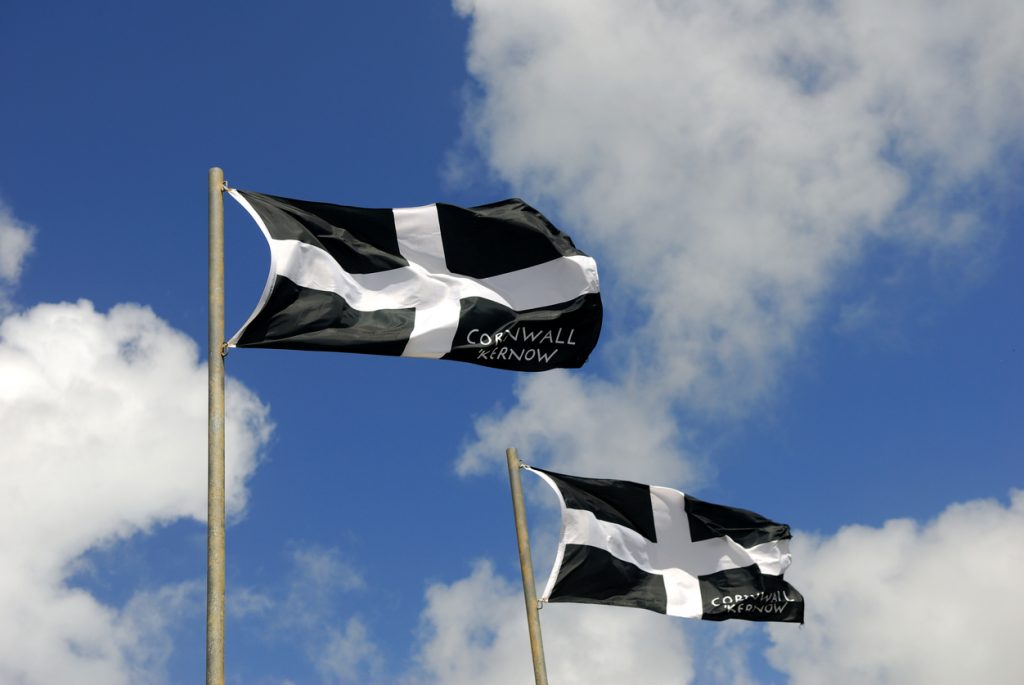
The last thing that you shouldn’t do in Cornwall is to ignore the fact that Cornwall has a very unique culture and identity.
I obviously run this blog, called Go South West England. It does include Cornwall, and I do recognize that Cornwall has a lot of features that make it very different from the rest of England.
And there are strong reasons why Cornwall should have a lot more identity and a lot more independence to make its own decisions like Wales and Scotland do.
(I just have a blog called Go Southwest England because it worked for SEO purposes, and at the moment, Cornwall is part of England).
But Cornwall has a very unique Celtic heritage, similar to Wales and Scotland, but also unique in its own way.
It has a lot of different customs and culture from the rest of England.
It has its own language, which is having a revival at the moment.
A lot of people are learning Cornish, way more people than used to, which is amazing!
You’ll find loads of Cornish festivals and Cornish customs.
Cornwall existed as a country before England did, and it was self-governed up until a point when it gradually dissolved into England.
But in the same way that Wales and Scotland have their autonomy, a lot of Cornish people think that Cornwall should have a bit more independence, to varying levels.
Whether you agree with this or not, if you’re in Cornwall, please be open-minded about this and listen to what people have to say if you get chatting to someone.
Listen to the history; it’s fascinating. Or check out my post “Is Cornwall in England”?
It’s a fascinating place, and I love the spirit that people have in Cornwall. It makes me very proud to be part Cornish.
Are you ready to visit Cornwall?
Hopefully, those things that you should not do in Cornwall have helped you plan your trip there!
Take a look at all of my Cornwall guides for more information.

